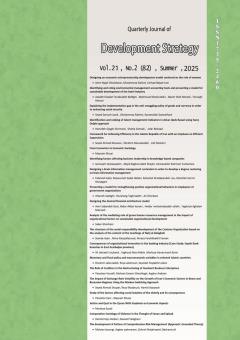Monetary and fiscal policy and macroeconomic variables in selected Islamic countries
Subject Areas : اقتصادیEbrahim safarzadeh 1 , Roya aleemran 2 , seyyed ali paytakhti oskooe 3
1 - PhD student, Department of Economics, Tabriz Branch, Islamic Azad University, Tabriz, Iran.
2 - Department of Economics, Tabriz Branch, Islamic Azad University, Tabriz, Iran
3 - Associate Prof., Department of Economics, Tabriz Branch, Islamic Azad University, Tabriz, Iran
Keywords: Monetary and fiscal policy, macroeconomic variables, Islamic countries.,
Abstract :
To implement a successful monetary and fiscal policy, it is necessary for economic authorities to have a correct assessment of the time and extent of the impact of this policy on economic variables. For this purpose, adequate understanding and recognition of the tools and mechanisms through which the monetary and fiscal policy affects the economic sectors is necessary. Therefore, developing a monetary and fiscal strategy appropriate to the economic conditions in countries such as Iran and Islamic countries such as Saudi Arabia, Kuwait, etc., which are concerned with Islamic economic policy and the elimination of interest rates and the implementation of economic justice, is of great importance. In order to collect the required information, this research was done from various tools such as internal websites and visiting libraries. Also, EXCEL software and EVIEWS13 statistical software were used to test the hypotheses and finally analyze the data. The research results have been examined in the form of eight hypotheses and the results show that the effect of fiscal policy in selected Islamic countries on the variables of GDP, price index and interest rate is positive and significant, and the effects of this policy on the exchange rate are negative and significant.
